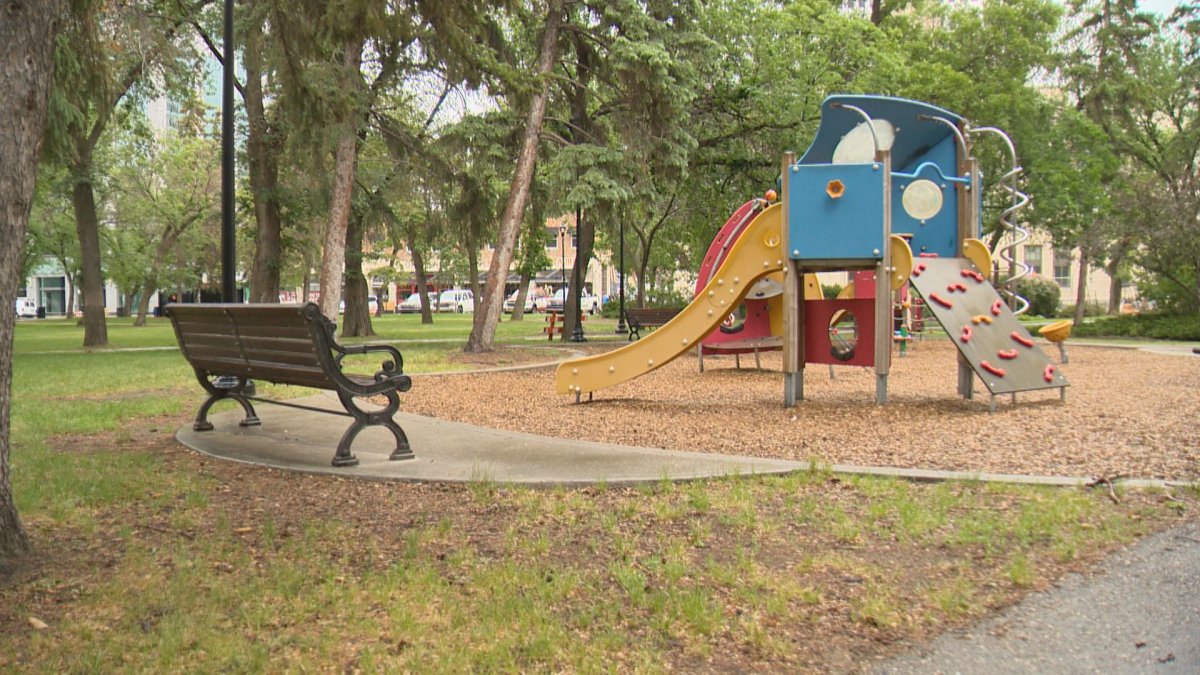The majority of Canadian children and youth still aren’t meeting national guidelines on physical activity and movement behaviour – and the COVID-19 pandemic has made it worse, according to a new study.

ParticipACTION launched the 14th edition of its Report Card on Physical Activity for Children and Youth this week.
The comprehensive assessment gave Canadian kids age five to 17 a D+ for overall physical activity, finding 39 per cent are meeting national guidelines of getting 60 minutes of daily moderate to vigorous activity.
“Definitely a lot of room for improvement,” said Dr. Leigh Vanderloo, an exercise scientist with ParticipACTION.
According to the organization, an interdisciplinary research team identifies and assesses report card indicators to determine grade assignments based on the best available data, research and key issue areas from the past year.
Vanderloo said Canadian kids received a failing grade on 24-hour movement behaviours, which take into account a number of factors.
“National guidelines currently encourage us to look at not just some of these behaviours in isolation, but rather the combination of physical activity, screen behaviours and sleep,” she said.
“With all of those taken together, we saw that only about 15 per cent of children and youth were meeting all three of those guidelines every day, and that was before the pandemic hit.”
Vanderloo said that number dropped to just under three per cent once social distancing and facility restrictions were put in place this spring.

The report card identified families as critical influencers in children’s physical activity and healthy habits, which also affects mental health.
“What we often overlook are the benefits to mental health. So dealing with stress, resiliency, symptoms of depression and anxiety. As well as cognitive, how kids think and learn,” she said.

Get breaking National news
Vanderloo said conversations and active role modelling of healthy activity is important for children, along with what she described as “co-participation.”
“Actually engage in the activity with them. So kicking a ball with them, going on an after-dinner walk with them, that’s what we’re seeing is probably the biggest source of influence.”
- Retired Quebec teacher buys winning lottery ticket at last minute, wins $40M
- N.B. election: Higgs went to ‘very dark place’ with Liberal joke, opponent says
- GM, Volvo, Land Rover vehicles among those in big recall. What to know
- NDP want competition watchdog to probe potential rent-fixing by landlords
Impact of COVID-19 pandemic
ParticipACTION noted that while families may be physically closer than before — staying home to help contain the spread of the novel coronavirus — there is also restricted access to playgrounds, physical school, childcare and playdates.
The organization conducted an online survey in April 2020, from a nationally representative sample of 1,472 Canadian parents of children five to 11 years old, or youth 12 to 17 years old.
It found 4.8 per cent of children, and 0.8 per cent of youth, were meeting 24-hour movement behaviour guidelines during COVID-19 restrictions, compared to 15 per cent prior to the pandemic.
The study also showed lower physical activity levels, less outside time and higher sedentary behaviour, including screen time, during the outbreak.
“All schools were on an online forum, it’s not surprising and families were doing the best they could at this time,” Vanderloo said, adding one way to help is by creating screen-free zones within the home adhered to be kids and adults.
“Where you can just ensure that at least screens won’t be interfering with certain moments. An important one is during meal time … and a no-fly zone for screens in the bedroom.”
Saskatchewan data consistent with national figures
According to Saskatchewan in Motion, provincial data on children’s physical activity is consistent with ParticipACTION’s national findings.
“There’s a lot of reasons why activity levels are the way that they are — and it isn’t all on parents,” said Cathie Kryzanowski, the executive director of Saskatchewan in Motion.
“It’s the way that we’ve designed our communities, the way we’ve created so much convenience in our lives that we’ve engineered physical activity out of our daily lives.”
Kryzanowski said she encouraged by the number of families spending time outside on their bicycles, or walking their neighbourhoods in Regina, but noted that is just one element of healthy habits.
“Also on the increase is screen time and sedentary time. So what Saskatchewan in Motion suggests is try to find some balance,” she said.
Kryzanowski said that with the added restrictions due to COVID-19, families are facing a unique situation heading into the summer.
With that, Saskatchewan in Motion has developed a free, COVID-friendly, online activity calendar for July and August. The ideas range from backyard play to more complex activities, all within public health guidelines.
“It’ll work similar to an advent calendar where every day you’ll come and get a new surprise, a new activity or adventure for families to participate in every day,” she said.








Comments